No, I don't want to be 'positive' about my tits
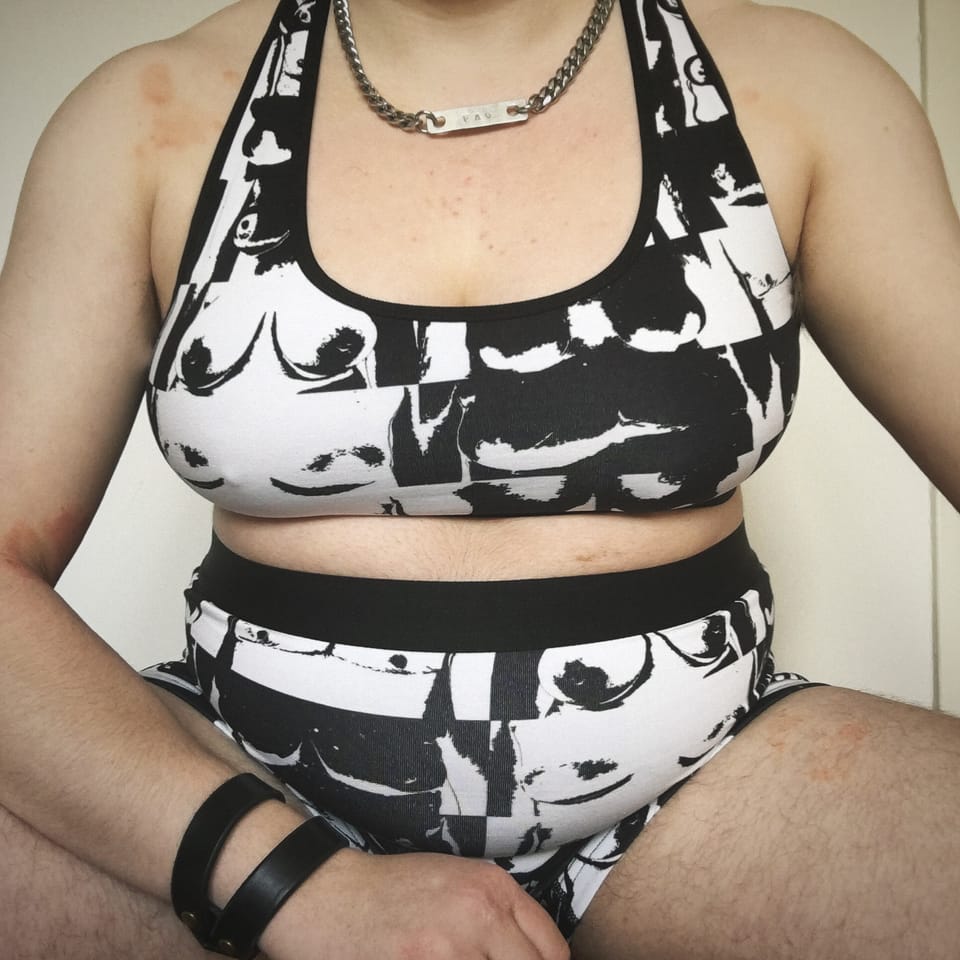
[CW: transphobia, mention of anti-fat bias, description of gender dysphoria and self-harm]
The gender dysphoria I have about my chest is incredibly intense right now. My tits feel alien to me; I’m disgusted by them. Yet even typing that, I feel like I’m saying something I shouldn’t admit to. I was brought up in an era of feminism that preached body positivity and told me to love my body.
But surely I don't have to be ‘positive’ about a part of my body that makes me so dysphoric?
This is not a realisation I arrived at on my own. I am a white, straight-size person. I am very privileged to move through the world without experiencing anti-fat bias – and for years I wasn't even aware of how anti-fat bias is built into our society.
With that in mind, I want to be clear that fat people have been pointing out the flaws with the body positivity movement way before I became aware of them. I read Sofie Hagen’s book, Happy Fat: a few years ago, and I fell in love with it from the introduction, which is delightfully anti-capitalist. In it, they outline how body positivity has been separated from what the original Fat Liberation movement stood for:
“By using the word ‘body’ instead of ‘fat’, we easily lose sight of what the core of the body image issue is: the hatred of fatness and fat people. By allowing the focus to rest on the ‘body positivity’ movement’, we are allowing wealthy companies to cash in on a fight that has been fought by fat activists since the 1960s. [...] They took ‘fat’ and replaced it with ‘body’ to erase the very existence of fat people and make it more palatable and sexy to consumers.”
Body positivity puts the onus on the individual to solve a systemic issue – in this case, ‘loving yourself’ as a solution to institutionalised anti-fat bias and the systems that judge our value by our bodies. (Which it is not.) Body positivity might be a step forward, but it feels similar to ‘girlboss’ feminism – it might be an introduction to the feminist or Fat Liberation movements for many people, but it also waters down their core values to the point where they now exclude the most marginalised people, often the ones who created these movements.
I feel like body positivity would tell me that I should love my tits, or at least accept them. But why should I have to? I shouldn’t have to be ok with the dysphoria that could be alleviated with gender affirming surgery, and I’m resolutely not ok with the years-long waiting lists, extortionate costs, and strict made-up-by-cis-people criteria that make top surgery so inaccessible.
I can’t even get to a place of body neutrality about my chest. I hate it – and I think that’s ok.
Starting testosterone has definitely lessened my dysphoria. And there are parts of my body that I do love. My broad shoulders, the hair on my belly, how much my dick has grown over the last two years. But I’ve known that I wanted top surgery since before I’d figured out that I’m a guy – my dysphoria about my chest is acute and painful.
Yet there are also days when I struggle with how my desire for top surgery stacks up against my very firm belief that bodies are not inherently gendered. If my tits don’t make me any less of a man, why am I so desperate to get rid of them? I worry that if I was a more enlightened queer, a better trans person, I wouldn’t feel so dysphoric about my chest.
Or is that body positivity rhetoric I was sold as a teenager telling me that I should accept my body, that all bodies are good bodies? I use the word ‘sold’ deliberately – unlike Fat Liberation, or even body neutrality, body positivity can be co-opted by capitalism. Companies have become very good at using “purple-washing” to sell us products. They use the language of feminism and body positivity, promising us empowerment and positioning purchasing a product as an act of self-love.
You know how transphobes describe trans men and trans masculine people getting top surgery as “self-mutilation”? There are times when my dysphoria feels all-consuming, and all I can think about is taking a knife or a pair of scissors and hacking away at my chest myself. In that moment, I will take any relief I can get. In that moment, I want to make my chest as horrifying to anyone looking at it as it feels to me.
What transphobes incorrectly call “self-mutilation” is body autonomy. Trans people should be able to access the gender affirming care we need and want – and that doesn’t mean that we don’t “love our bodies enough”.
I love myself enough to pursue a medical transition, I love myself enough to live as a visibly trans person. I don't need to be positive about my body, or about how hard it is to exist as a trans person right now; it feels like a pressure not only to be positive, but make my body and my dysphoria palatable for cis people. I can say I hate my tits without it detracting from how much I love my transness.
I don't want to be 'positive' about my tits; I want body autonomy.



- I wrote about the joy and power trans and non-binary people find in T4T relationships for Gay Times! Although the term 'T4T' has its origins in cruising and Craigslist personals, its definition has expanded and today it is increasingly used to describe community care and mutual aid projects by trans people for trans people. (That said, my favourite part of this piece was getting to write about why trans people are just undeniably hot.)
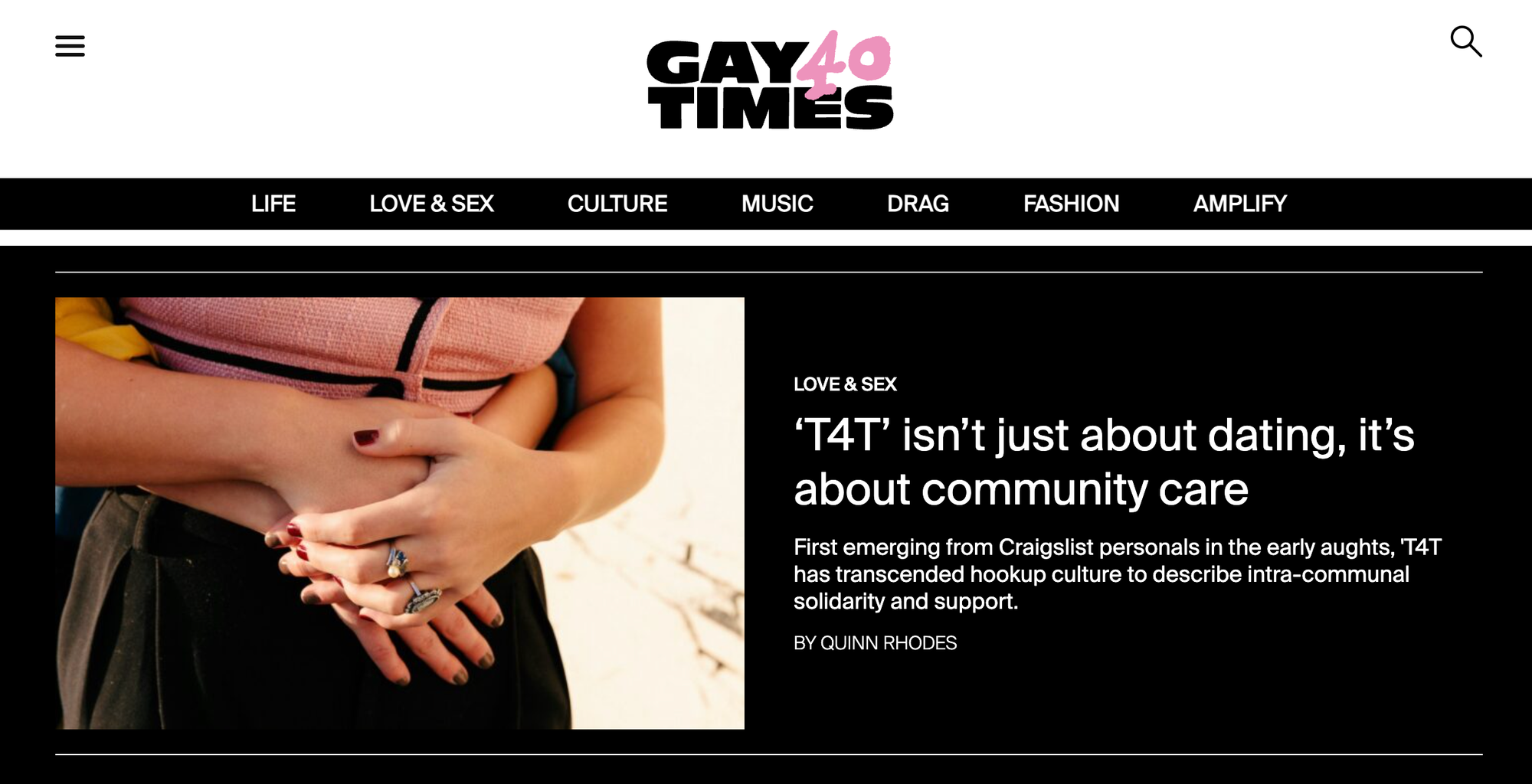
- Shahed Ezaydi wrote about the normalisation of Islamophobia and how just existing in the UK as a Muslim woman is exhausting for Stylist. "Some media outlets have also reported on the riots using problematic and biased language. [...] these terms only serve to reinforce a particular narrative – that this violence is some sort of political protest or activist movement, when it’s not. This reporting and use of language validates the far-right’s ‘concerns’ instead of firmly condemning their harm and violence."
- I'm planning to read all of Michael Waters' writing around sports, queerness, and sex-testing, but I started with this TIME piece, The Nazi-Era Myth Behind Olympics Gender-Testing Rules, which shows just how long misinformation has gone hand-in-hand with sporting bodies policing who qualifies as 'male' or 'female'. "The truth is that Nazi officials were one of the driving forces behind these policies. These policies weren’t designed to stop the fascists. They were designed by the fascists."
- In light of the World Health Organisation declaring a public health emergency of international concern (PHEIC) in relation to the upsurge of MPOX in the Democratic Republic of Congo and a number of neighbouring countries, The Love Tank has put together a super helpful update and advice for queer men and trans folks in the UK.
- This Carta Monir tweet made me cry, and I've thought about it at least once a week since I first saw it:
Your children will transition no matter what you do. They will cut you out of their lives for what you've done to them. They will live free, beautiful, hedonistic lives outside of your control.
- It's taken me ages to actually read We Could Be So Good* by Cat Sebastian, because it's set in 1950s New York and I've essentially been reading solely contemporary queer romance this year. But I'm so glad I finally did, because it contains not only queer journalists falling in love (and fucking), but also passages about queerness and community that made me cry.
- After loving Cleat Cute earlier this year, I wasn't at all surprised by how much fun I had reading Mistakes Were Made* by Meryl Wilsner. I'm not saying I read it just for the brilliantly written sex scenes, but our younger woman-older woman pairing were literally making out in the bathroom of a bar by page four. I think I devoured the entire book in one delicious sitting.
- Finally, Bex Wade's photographs of London Trans Pride are absolutely incredible. Check out their words and photography in British Vogue and go follow them on Instagram.

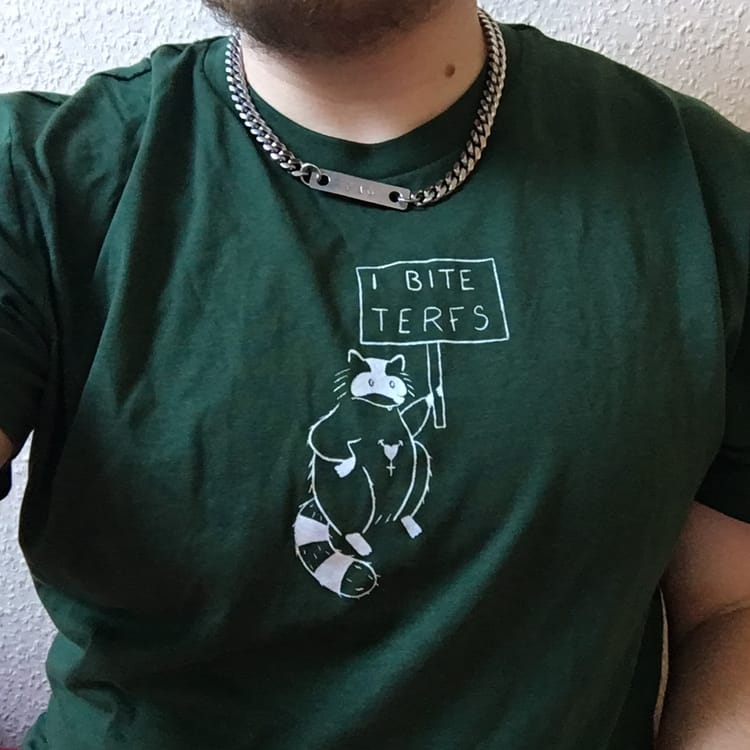
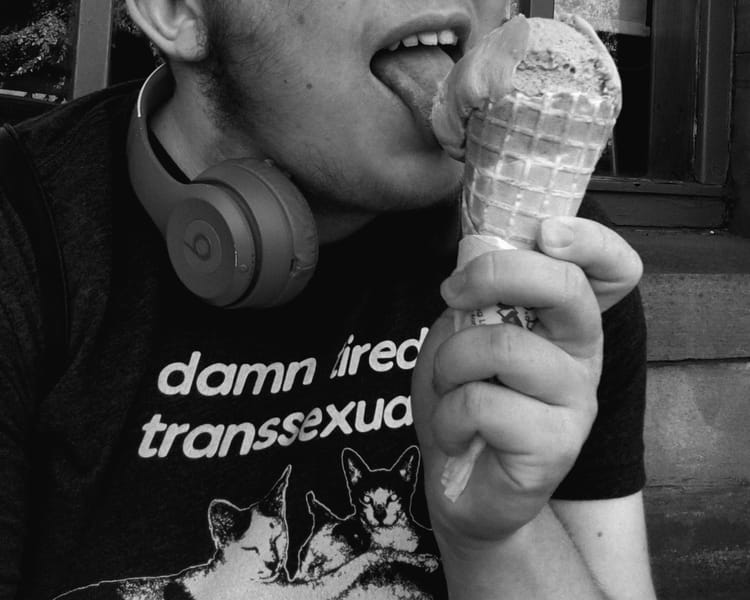
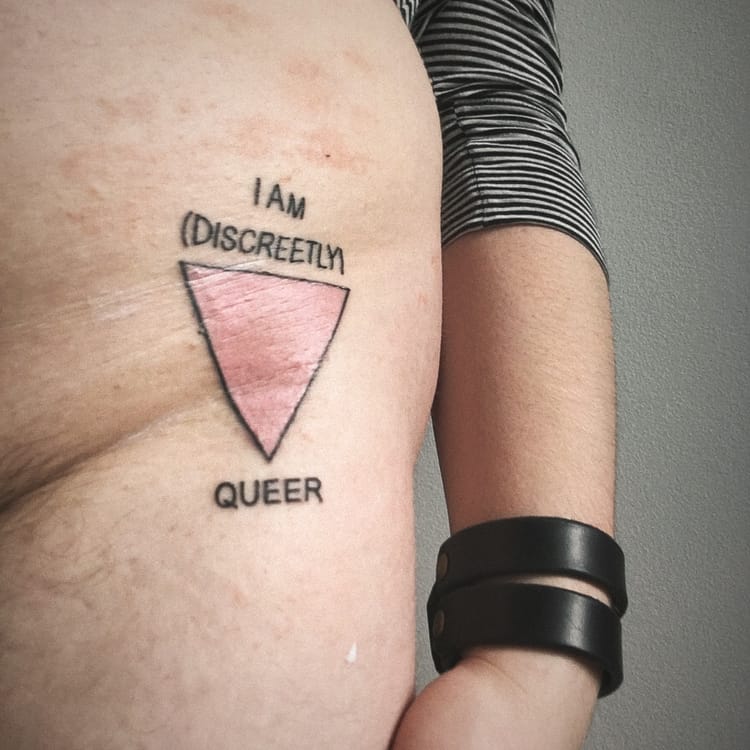
Member discussion